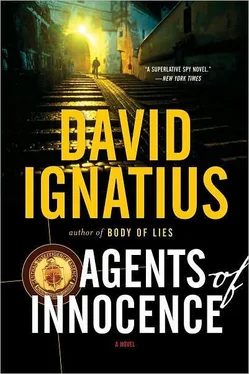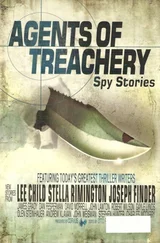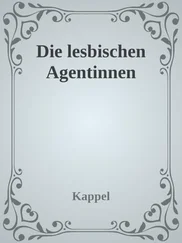David Ignatius - Agents of Innocence
Здесь есть возможность читать онлайн «David Ignatius - Agents of Innocence» весь текст электронной книги совершенно бесплатно (целиком полную версию без сокращений). В некоторых случаях можно слушать аудио, скачать через торрент в формате fb2 и присутствует краткое содержание. Жанр: Шпионский детектив, на английском языке. Описание произведения, (предисловие) а так же отзывы посетителей доступны на портале библиотеки ЛибКат.
- Название:Agents of Innocence
- Автор:
- Жанр:
- Год:неизвестен
- ISBN:нет данных
- Рейтинг книги:3 / 5. Голосов: 1
-
Избранное:Добавить в избранное
- Отзывы:
-
Ваша оценка:
- 60
- 1
- 2
- 3
- 4
- 5
Agents of Innocence: краткое содержание, описание и аннотация
Предлагаем к чтению аннотацию, описание, краткое содержание или предисловие (зависит от того, что написал сам автор книги «Agents of Innocence»). Если вы не нашли необходимую информацию о книге — напишите в комментариях, мы постараемся отыскать её.
Agents of Innocence — читать онлайн бесплатно полную книгу (весь текст) целиком
Ниже представлен текст книги, разбитый по страницам. Система сохранения места последней прочитанной страницы, позволяет с удобством читать онлайн бесплатно книгу «Agents of Innocence», без необходимости каждый раз заново искать на чём Вы остановились. Поставьте закладку, и сможете в любой момент перейти на страницу, на которой закончили чтение.
Интервал:
Закладка:
“A little,” said Stone. “But that’s water over the dam.”
“Not over my dam.”
“We made the decision to deal with him, on the assumption that it would help save American lives. Already he has given us some useful information, and we stand to get far more. Whether the decision to work with him was right or wrong, we made it. And I’m not sure that we should go back on it.”
“The rebellion in the ranks appears to be growing,” said the Director.
“Let’s look at the practical side of this.”
“Yes, let’s.”
“If you order Hoffman to turn over intelligence on Ramlawi, he’ll quit.”
“Evidently. Fine old fellow. Gone to seed a bit in Beirut. Sorry to see him go. Next.”
“If you order Rogers to turn over intelligence on Ramlawi, I suspect that he will also quit.”
“Pity. A fine career ahead of him. He would be foolish to do so. But I can’t stop him. So that’s the end of it.”
Stone swallowed hard. He had hoped the discussion would not reach this point. He thought, momentarily, about his pension, his friends, his career ambitions, and then plunged ahead. There was no stopping now.
“There is one final item, Director.”
“What is that?”
“If you order me to turn over the intelligence on Ramlawi, I will also quit. With great sadness and reluctance. But I will not carry out an order that I think you will have cause to regret later.”
The Director was dumbstruck.
“You can’t be serious,” he said after a moment’s reflection.
“I am.”
“But I don’t want you to leave. I trust your judgment. I depend on you.”
“Then listen to me.”
“Very well,” said the Director.
“I think I can suggest a sensible compromise.”
The Director’s demeanor changed at the mention of the word “compromise.” His face perked up, and you could almost see him adjusting and refiguring his mental calculus of the Ramlawi problem.
“I’m listening,” said the Director.
“The compromise is very simple. We won’t help the Israelis kill Ramlawi. But we won’t help Ramlawi stay alive, either. We will do our best to stay neutral in this war.”
“What do we tell the Israelis?”
“We tell them that of course we’ll help them. They are our friends and allies. And then we give them something that has nothing to do with Ramlawi. COMINT. Or satellite photos. They’re always asking for satellite photos.”
“And if they ask specifically about Ramlawi?”
“Tell them you don’t know what they’re talking about. We never met the man.”
The Director looked at his nails, examining them for dirt.
“That is not unreasonable,” he said eventually.
There was a knock at the door.
“Let them in,” said the Director.
“Stone and I have come up with a plan,” said the Director. “Something that will be responsive to our Israeli friends without offending the delicate sensibilities of the Beirut station. Edward, why don’t you explain what we intend to do?”
Stone gave a brief explanation of his plan. The only thing that was clear when he had finished was that the crisis of a few minutes ago was over. Rogers relaxed and smiled with relief. But Hoffman looked more taciturn, and spent much of the rest of the meeting staring at the walls.
39
Beirut; October-November 1972
The dinner party that night for the Director and his wife went ahead according to schedule. It was hosted by Ambassador and Mrs. Wigg, who swallowed their pride and decided to ignore the rebuke at the airport. There was a lengthy guest list: Frank and Gladys Hoffman; Tom and Jane Rogers; Youssef Majnoun, the head of the Lebanese Deuxieme Bureau, and his wife Brigitte; the recently appointed deputy chief of the Deuxieme Bureau, Samir Fares, and his wife Hoda; Edward Stone, who was accompanying the Director; and as an extra woman to make the table come out right, Solange Jezzine, the estranged wife of the former head of the Deuxieme Bureau.
It was a pleasant enough evening. The American men seemed a bit tired, especially Frank Hoffman. The chief of the Deuxieme Bureau, Majnoun, was so intent on impressing the Director that he made a nuisance of himself. Samir Fares and his wife were clever and witty and made a favorable impression on everyone, most of all the American intelligence officers at the table, who had been paying Fares a generous stipend the last several years.
What the Director himself seemed to enjoy most was his conversation in the drawing room after dinner with the charming extra woman, Madame Jezzine. She was radiant: dressed in a stunning low-cut gown that showed off her figure, and wearing her hair up off her shoulders in a way that highlighted her long neck and cheekbones. She looked, the Director remarked to Mrs. Wigg, like an Arab princess.
Solange flirted elegantly with the Director, asking him about his athletic interests, expressing astonishment about his age. Jane Rogers, deep in conversation with Edward Stone about life in Beirut, couldn’t help overhearing the conversation and admiring the wiles and beauty of her friend Solange. The Director himself seemed ready enough to spend the rest of the evening with the Lebanese beauty. So he was dismayed when, after twenty minutes of conversation, Solange Jezzine excused herself and strolled out toward the garden, where Tom Rogers was talking to Samir Fares.
“Am I interrupting anything?” asked Madame Jezzine.
“Oh no,” said Fares. “I was just telling Mr. Rogers about the village where I was born. He must be very bored hearing about Lebanese villages. Why don’t you rescue him?”
“Happily,” said Solange.
“Would you like another drink, Tom?” asked Fares.
“No thanks,” said Rogers. “We have to be leaving soon.”
Fares walked inside, leaving the two of them alone in the garden.
“Why have you been avoiding me?” asked Solange. She asked the question like a spoiled little girl, her lips pouting.
“I haven’t,” said Rogers.
“Yes you have, and you shouldn’t!” said Solange. She had slipped her arm through Rogers’s and was walking him slowly down a gravel path in the garden, away from the house and the light.
Rogers felt his heart beating. He felt dreamy and light-headed. It was pleasant, for once, to be in the power of someone else’s personality. Solange leaned her head a little closer to his as they walked along the path. He could smell the perfume behind her ear.
Solange stopped. She turned her head up toward Rogers and spoke in a whisper.
“I’m on fire,” she said.
She kissed him on the mouth. Or he kissed her. It was impossible to know which. As they kissed, Solange put her arm around Rogers’s neck and gently stroked the hair at the nape of his neck. Rogers felt himself becoming aroused, which embarrassed him. Solange pressed tighter against him for a moment, as if to say, Yes, I feel it. I want it. Then she pulled away, smiling coyly and regally.
“You must visit me,” she said. She kissed him gently on the cheek and walked alone back toward the house.
Rogers composed himself. When he returned to the drawing room, the party was breaking up. The Director, deprived of Madame Jezzine’s company, had suddenly become tired and was saying his goodbyes to the Wiggs.
Jane Rogers was still rapt in conversation with Stone. It turned out that Stone had known Jane’s father, the Colonel, in London during the war. Jane was explaining, in a low voice, the volunteer work she had been doing with Palestinian women at the Makassed Hospital, which Stone heartily approved. The two of them were hoisting a second glass of brandy when Rogers walked over and mentioned that it was getting late. Jane gave Stone a kiss, said goodnight, and went upstairs to get her coat.
Читать дальшеИнтервал:
Закладка:
Похожие книги на «Agents of Innocence»
Представляем Вашему вниманию похожие книги на «Agents of Innocence» списком для выбора. Мы отобрали схожую по названию и смыслу литературу в надежде предоставить читателям больше вариантов отыскать новые, интересные, ещё непрочитанные произведения.
Обсуждение, отзывы о книге «Agents of Innocence» и просто собственные мнения читателей. Оставьте ваши комментарии, напишите, что Вы думаете о произведении, его смысле или главных героях. Укажите что конкретно понравилось, а что нет, и почему Вы так считаете.












